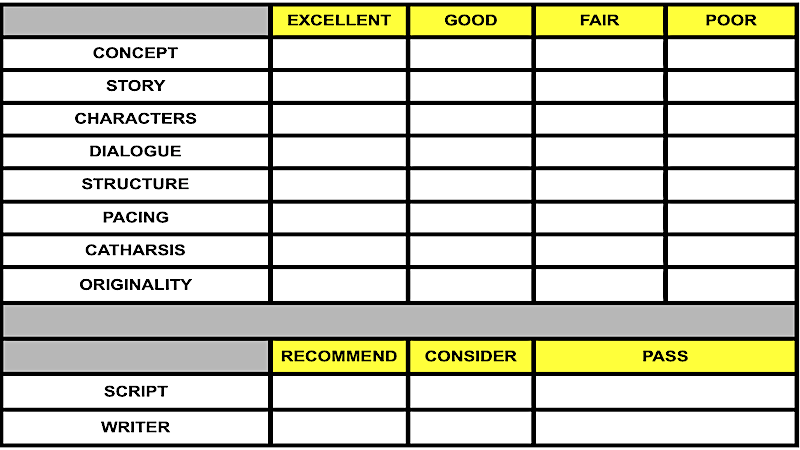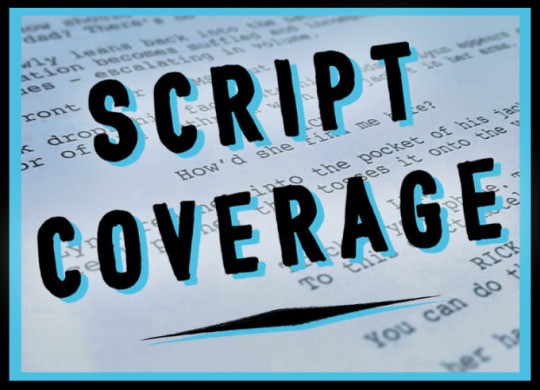Professional screenwriters use script coverage, which is a report that provides an analysis of a screenplay. Many producers, studio executives, managers, and agents of the professional industry use it. Like story boarding is the foundation of visual image, script coverage is the foundation of the written word. So in this article, you will get to know 10 reasons why script coverage can help screenwriters.
There are many professional services available as script coverage for studios and producers who want reliable, accurate, and trusted script coverage. The story notes of the script allow decision-makers to prioritize many projects they have on their plate and decide what to send to production and what to set back. It also helps them screen the large amount of material they receive every day.
It is the task of the assistant to provide notes and generate comprehensive value to lessen the massive amount of material that moves through the office. However, script coverage is a decision-making tool used by professionals and a mechanism to help screenwriters shape their content to better appeal to the huge entertainment industry.
Why Script Coverage Can Be Helpful For A Screenwriter

1. Synopsis/Summary
When it comes to script coverage, the most common element of script coverage is the summary of the script which is a synopsis that is handy information for the endless meetings about each project. It recounts the story’s main developments because readers like to read a summary of the script, whereas some pick plot points only. It would be best if you had recognized beats at the start to stand out from dozens of the other scripts out there to read. Keep in mind that the story is successful when it has logic that drives it with causation, conveying the right tone of the character’s reaction.
2. Comments
Coverage for development companies can be as simple as a synopsis and a section for comments followed by a Pass, Consider and Recommend rating. These comments matter as they tell you what worked and what didn’t. Unless you are told, it’s good to know what the people reading your coverage are interested in developing or buying. Comments on the script will tell you which company is the right fit for you. If they liked the script, they’ll point directly to what they love and explain why they loved it; more in-depth coverage will often break comments down into sections.
3. Plot
Script coverage will highlight the strength of the overall story and pinpoint the plot’s logic, such as if your script has an issue with causation, then highlight the section. There must be turning points and incidents that raise the stakes in the story. It’ll bring them up to be specific and clear while not being mean since some writers may take offense to constructive criticism if poorly phrased.
4. Structure
Movies use specific structures to impact their characters and make the audience question the reality of the story. Many others highlight a series of trials, specific goals, and get in a competition to grab the audience’s attention because the structural framework propels the story. You need to find out if the script’s pacing gradually builds tension with the story weighted towards the beginning, middle, and end. Such comments from script coverage are helpful for the screenwriters.
5. Concept
Some stories have high concepts; everyone can hear them, but other concepts prefer an inciting incident or clear human stakes that tell the story, so this section of script coverage focuses on the sweeping idea of the script. Script coverage will let you know if the story’s concept is solid and whether it’s overstuffed with useless elements. On the other hand, if the story’s concept is dynamic and original, the script coverage will tell you that and maybe give you tips on how to make it even better.
6. Characters
You have to provide information about the story’s character, whether clichéd, unnecessary, or sympathetic. You must use specific examples of character actions to illustrate their traits and engage the reader. Some writers make the mistake of telling the reader who a character is instead of showing the character to the reader. Being a screenwriter of the script means you must describe the moments of discovery in the script not tell them. Script coverage will keep you on track with this.
7. Dialogue
Script coverage will tell you if the characters speak distinctly or sound the same voice? It is a tricky area to discuss, so make sure to make notes with page numbers to specify the lines that highlight problems with the way a character speaks.
8. Marketability
Check out the script’s marketability; it is the foremost task of the script coverage on what demographics the story has been written. It’s easy to know 10 reasons why script coverage can help screenwriters if you know their way of thinking about a script. If you don’t know, then read up on the subject on how studios market their films too. You will find out the professionals often give interviews where they talk about the business-we-call-show to focus on the realities of filmmaking.
9. Rating
If the story has the charm, they think it is a million dollar script, and the writing really springs off the page, they’ll give the script a Recommend. You may have some doubts, but it would be difficult to figure out what matters the most in your script. Script coverage will give a rating and reason if emotional impact is perceived by pacing, good plot and characters that are brought to life.
10. Writer Career Sites
If you don’t want a manual script coverage template, you can go to the sites with popularity as they offer ongoing support for writers. They will help writers to develop great scripts and develop their careers or hook up with industry professionals. You can support many other writers to get attention on your script and get a better reputation with the script coverage.
Leave A Comment
As you know, this site is dedicated to helping screenwriters. To help out our fellow screenwriters, leave a comment to make the content easier to find.
Related:


Leave a Reply